Homelands senior producer Jonathan Miller reports from Ithaca, New York, whose ambitious Green New Deal seeks to deliver drastic cuts in greenhouse gas emissions and major benefits for the community’s most vulnerable members. It’s a hometown story with implications for hometowns everywhere.
There are 109 items tagged:
Economy

-
-
Special Projects
Is the coronavirus pandemic Mother Nature’s revenge?
Special Projects
Is the coronavirus pandemic Mother Nature’s revenge?
On the 50th Earth Day, it’s long past time to recognize that this overcrowded planet has run out of room to cut us any slack. By Alan Weisman Originally published in the Boston Globe Magazine, April …
-
Special Projects
Back to the Garden
Special Projects
Back to the Garden
Alan Weisman reconsiders the Genesis story in the light of what we now know came after it. His essay originally appeared in the 2018 book “Eden Turned on Its Side” by photographer Meridel Rubenstein.
-
The Homelands Blog
Life, death, and water in Gaza
Sandy Tolan is in Gaza, reporting on the water crisis there. Here is a Facebook post from July 26: This morning in Gaza, a whiff of war in the air in the wake of Israel’s …
-
The Homelands Blog
Big plans for Big Oil
Sandy Tolan made five trips to North Dakota this past fall and winter to document the standoff between opponents of the Dakota Access Pipeline and the pipeline’s supporters in government and business. As he reported on …
-
The Homelands Blog
Going Gray in LA
Los Angeles is a rapidly aging city in a rapidly aging county. In fact, over the next 15 years, LA County’s senior population will double, to nearly one-fifth of the total population. Housing, health care, …
-
The Homelands Blog
Tension rises between protesters and tribes
Sandy Tolan has returned to North Dakota to report on the status of the Dakota Access Pipeline protests in the aftermath of the presidential order instructing the Army Corps of Engineers to expedite the approval of construction permits. …
-
The Homelands Blog
KCRW launches “Going Gray in LA”
One of Los Angeles’ NPR affiliates, KCRW, has launched Bear and Rux’s year-long multi-platform project about aging in the city’s working-class and immigrant neighborhoods. “Going Gray in LA: Stories of Aging along Broadway” is part …
-
The Homelands Blog
Hope on the horizon for strawberry workers?
The strawberries on your breakfast cereal might not taste so sweet if you knew how bitter life can be for the folks who pick them. As if backbreaking labor and extremely low wages weren’t enough, strawberry workers are …
-
The Homelands Blog
Alan Weisman on South American speaking tour
Homelands’ co-founder and senior producer Alan Weisman is spending nearly a month in Colombia and Ecuador giving talks and interviews about his two most recent books, The World Without Us and Countdown.
-
The Homelands Blog
Photo file: Protests in Ecuador
Since August 13, Ecuadorians from across the political spectrum have been observing a nationwide strike and marching in the streets against the policies of President Rafael Correa. Homelands’ Bear Guerra has been documenting the protests, which have received little attention in the international …
-
The Homelands Blog
Alan Weisman: Have fewer kids
This month, as part of a special issue on the environment, VICE Magazine asked leading thinkers to weigh in with their ideas about what to do about climate change. Below is Homelands’ Alan Weisman‘s essay, based …
-
Special Projects
Stand-alones, one-offs, books, and other work from members of the Homelands collective.
-
Jonathan Miller
Special Projects
Power to the People
Jonathan Miller
Special Projects
Power to the People
As politicians argue about what to do about climate change, communities around the United States are taking matters into their own hands – pledging to reduce their carbon emissions, then hustling to make good on their promises. From Ithaca, NY, an hour-long special for State of the Re:Union.
-
The Homelands Blog
On Planet Money, looking for a Square Deal
If you happen to visit Johnson City, NY, just outside Binghamton, you’re likely to pass under a stone arch inscribed with the words, “Home of the Square Deal.” The arch (there are actually two, one …
-
The Homelands Blog
Ecuador welcomes its migrants home
On the day Ruxandra Guidi arrived in Quito last year, she spoke with the owner of her bed and breakfast, an English-speaking Ecuadorean in his late twenties with obvious entrepreneurial savvy. He’d attended college in the U.S. on his parents’ …
-
The Homelands Blog
Big year coming (you can help!)
Before we say goodbye to 2014 we thought we’d give you a sneak peek at what we’re cooking up for the year to come. If you feel it’s worth supporting, far be it from us to stand …
-
The Homelands Blog
Welcome to The SEAMS
We were closely watching the Kickstarter campaign for “The SEAMS,” a new podcast and radio series probing the history, culture, class, gender politics, and other deeper meanings hidden in the folds of clothing and fashion. …
-
The Homelands Blog
A boon for the women of Ecuador
For the 60,000 residents of Cañar, Ecuador, the costs of migration can be great, especially for children. But the benefits can be great as well: unprecedented access to education and jobs, freedom of movement and financial independence for …
-
Food for 9 Billion
Exploring the challenge of keeping ourselves fed at a time of rapid social and environmental change.
-
Alan Weisman
Special Projects
Countdown
Alan Weisman
Special Projects
Countdown
In this monumental piece of reporting, Alan Weisman travels to more than 20 countries, beginning in Israel and Palestine and ending in Iran, on an urgent search for ways to restore the balance between our species’ population and our planet’s capacity to sustain us.
-
Jonathan Miller
Food for 9 Billion
Alt Meat Lunch
Jonathan Miller
Food for 9 Billion
Alt Meat Lunch
As global demand for animal protein surges, so do the environmental costs of producing it. Researchers in the Netherlands are exploring alternatives, from lab-grown burgers to edible insects to faux meat made from plants. But will people eat them?
-
Jonathan Miller
Food for 9 Billion
Desert Lunch
Jonathan Miller
Food for 9 Billion
Desert Lunch
In the desert of Qatar, scientists and engineers are working to transform “what we have enough of” – sand, sunlight, sea water, and CO2 – into “what we need more of” – energy, fresh water, and food. Does their idea hold promise for the world’s driest places?
-
Serene Fang, Susanne Rust
Food for 9 Billion
California Looks to Milk China’s Dairy Demand
Serene Fang, Susanne Rust
Food for 9 Billion
California Looks to Milk China’s Dairy Demand
As U.S. demand falls, California dairies are finding new markets in China. That may make sense for the industry, at least for now. But what about the planet?
-
Gretchen Wilson
Food for 9 Billion
Africa’s Supermarket Sweepstakes
Gretchen Wilson
Food for 9 Billion
Africa’s Supermarket Sweepstakes
The spread of modern grocery chains could lift millions of African farmers out of poverty. Or it could ruin them.
-
Sam Eaton
Food for 9 Billion
Vietnam Fish Farms Look for Future-Friendly Formula
Sam Eaton
Food for 9 Billion
Vietnam Fish Farms Look for Future-Friendly Formula
More than half the seafood eaten in the world today is farmed, not wild. As demand for protein soars, scientists and fish producers look to lessen the impact of factory farming.
-
Sam Eaton
Food for 9 Billion
Graying Farmers Force Japan to Rethink Food System
Sam Eaton
Food for 9 Billion
Graying Farmers Force Japan to Rethink Food System
As the average age of its farmers creeps into the 70s, Japan grapples with a question that many industrialized nations now face: Who will grow our food in the future?
-
Jonathan Miller
Food for 9 Billion
Water Man
Jonathan Miller
Food for 9 Billion
Water Man
Fast-growing India is pumping its aquifers dry. Rajendra Singh says solutions will come from the ground up.
-
Cecilia Vaisman
Food for 9 Billion
Brazil Delivers on Hunger Promise
Cecilia Vaisman
Food for 9 Billion
Brazil Delivers on Hunger Promise
In 2003, the Brazilian government declared that food was a basic human right. Then it found that ending hunger takes a lot more than a declaration.
-
Fred de Sam Lazaro
Food for 9 Billion
Business Fund Puts African Farmers on Road to Market
Fred de Sam Lazaro
Food for 9 Billion
Business Fund Puts African Farmers on Road to Market
A start-up in East Africa aims to give small-scale producers the tools they need to compete – and business is booming.
-
Cassandra Herrman, Beth Hoffman
Food for 9 Billion
In Ethiopia, a Battle for Land and Water
Cassandra Herrman, Beth Hoffman
Food for 9 Billion
In Ethiopia, a Battle for Land and Water
A controversial resettlement program in Ethiopia is the latest battleground in the global race to secure prized farmland and water.
-
Sandy Tolan
Food for 9 Billion
Egypt’s Growing Pains
Sandy Tolan
Food for 9 Billion
Egypt’s Growing Pains
More than one million Egyptian farmers have quit the land in the last 20 years, reshaping the country’s physical and political landscape.
-
Sandy Tolan
Food for 9 Billion
In Egypt, Food for a Revolution
Sandy Tolan
Food for 9 Billion
In Egypt, Food for a Revolution
Egyptians used to grow nearly all their own food. Today, the country relies on imports. The people on the street aren’t happy.
-
Jonathan Miller
Food for 9 Billion
Food for 9 Billion: The Scientific Challenge
Jonathan Miller
Food for 9 Billion
Food for 9 Billion: The Scientific Challenge
Nearly every prescription for feeding the world says we need to invest more money in science. What’s that money going to get us?
-
Jonathan Miller, Joe Richman, Samara Freemark
Special Projects
The Square Deal
Jonathan Miller, Joe Richman, Samara Freemark
Special Projects
The Square Deal
An inside look at the legacy of George F. Johnson, an industrialist who offered his mainly immigrant workers decent working conditions and generous benefits in exchange for labor peace. Until it all fell apart under the pressure of competition.
-
WORKING
Profiles of workers in the global economy, broadcast as a special monthly feature on Marketplace.
-
Sandy Tolan
WORKING
Shipbreaking Worker
Sandy Tolan
WORKING
Shipbreaking Worker
Ismael “Babu” Hussein works as an assistant in one of Bangladesh’s shipbreaking yards, where armies of laborers dismantle old vessels the way ants devour a carcass. The work is perilous, the bosses abusive, the hours exhausting. Heavy stuff for a 13-year old kid.
-
-
Ingrid Lobet
WORKING
Electronics Recycler
Ingrid Lobet
WORKING
Electronics Recycler
Vicki Ponce was in her 50s, selling tamales in the street, when she and some middle-aged women friends decided to start a company dismantling old TV sets. Business is good. It would be even better if the jealous mayor would turn on the electricity.
-
Gregory Warner
WORKING
Human Smuggler
Gregory Warner
WORKING
Human Smuggler
For 30 years, Alidad has been smuggling Afghans on a secret nighttime passage through the mountains of western Pakistan into Iran. “I have a lot of sad memories,” he says.
-
Kelly McEvers
WORKING
Marriage Broker
Kelly McEvers
WORKING
Marriage Broker
If you’re a Korean man who wants to marry a Vietnamese woman, Hang Nga is your go-to gal. Vietnam’s government frowns on the match-making business, but Nga says it’s worth the risk. The money means a brighter future for her two young children.
-
Sandy Tolan
WORKING
Labor Inspector
Sandy Tolan
WORKING
Labor Inspector
Leandro Carvalho had a comfortable job as an insurance agent on Rio de Janeiro’s Copacabana Beach when he decided to join Brazil’s anti-slavery task force. He says he won’t quit until the last slave is freed.
-
Gregory Warner
WORKING
Miner
Gregory Warner
WORKING
Miner
Fidele Musafiri spends his days, and often his nights, banging away at a wall of stone in a crude tunnel under a Congolese mountain. He’s a small man with a hammer, a spike, and a dream of striking it rich. But danger is never far away.
-
Kelly McEvers
WORKING
Pirate
Kelly McEvers
WORKING
Pirate
Agus Laodi could barely feed his family with his earnings as a cocoa farmer. So he left his Indonesian village to seek his fortune on an island in the Strait of Malacca. Now he slips out at night to rob cargo ships with a machete.
-
Jonathan Miller
WORKING
Industrial Designer
Jonathan Miller
WORKING
Industrial Designer
Industrial designers are the anonymous people who decide how the things around us look and feel. For Raffaella Mangiarotti, design isn’t about colors or shapes. It’s about solving problems.
-
Kelly McEvers
WORKING
Sex Worker
Kelly McEvers
WORKING
Sex Worker
Samanta plies her trade in Baku, an oil boom town. In a corrupt and violent society, it can be a very dangerous life – especially for a woman who was born a man.
-
Janna Graham
WORKING
Iceberg Wrangler
Janna Graham
WORKING
Iceberg Wrangler
With the Newfoundland fishing industry in the tank, Whyman Richards says he’ll give anything a try. So he steers his homemade boat toward the dreaded mountains of ice that break off the Greenland ice sheet every summer.
-
Gregory Warner
WORKING
Tannery Worker
Gregory Warner
WORKING
Tannery Worker
Mohmen left his village at 13 and quickly found work stacking animal skins in one of Karachi’s many tanneries. Now 17, he’s still doing the same job. The longer he works, the deeper his debt. “I don’t want to smile,” Mohmen says, “but it’s all I can do.”
-
Jonathan Miller
WORKING
Movie Director
Jonathan Miller
WORKING
Movie Director
Nigeria’s Nollywood film industry may be the third largest in the world, but with little government support, daily power failures, no real studios, and rudimentary equipment, Nigerian filmmakers must be masters of making do. That describes Lancelot Oduwa Imasuen to a tee.
-
Kelly McEvers
WORKING
Trader
Kelly McEvers
WORKING
Trader
Hussein Ralib Esfandiari crosses back and forth between Dubai and his native Iran laden with whatever bargains he can find at market. The Gulf is one of the most politically volatile regions on earth. But politics is the least of Hussein’s worries.
-
Kelly McEvers
WORKING
Cargo Agent
Kelly McEvers
WORKING
Cargo Agent
Foreign workers have the same rights in Saudi Arabia, as long as they’re alive. But when non-Muslims die there, as thousands do each year, they have to go home for burial. And somebody’s got to get them there. Meet Wahid Khan Habibula.
-
Jonathan Miller
WORKING
Textile Worker
Jonathan Miller
WORKING
Textile Worker
Marco Moreno’s parents were tailors, with a tiny shop in a working-class neighborhood in Lima, Peru. He and his brothers decided they could do better. But nobody said it would be easy.
-
Jonathan Miller
WORKING
Basketball Scout
Jonathan Miller
WORKING
Basketball Scout
Nigerian Sam Ahmedu is a foot soldier in the NBA’s army of international recruiters. A few of his finds have made it to the pros, but that’s not what motivates him.
-
Claudine LoMonaco
WORKING
Lobster Diver
Claudine LoMonaco
WORKING
Lobster Diver
Romulo Greham, a Miskito Indian on Honduras’ Caribbean coast, almost lost his life while diving for lobsters for the U.S. market. Now he’s trying to keep other divers from the repeating his mistakes.
-
Chris Brookes
WORKING
Oil Worker
Chris Brookes
WORKING
Oil Worker
Blair Ghent left a good job in Toronto to return home to rural Newfoundland. But work is hard to come by on the island, and soon he found himself joining thousands of unemployed Newfoundlanders commuting 3,000 miles to the oil sands fields of Alberta.
-
Rachel Louise Snyder
WORKING
Silk Merchant
Rachel Louise Snyder
WORKING
Silk Merchant
Chanta Nguon says Cambodian women are supposed to be quiet and cool, like moonlight. She’d rather be sunlight.
-
Sandy Tolan
WORKING
Express Mail Driver
Sandy Tolan
WORKING
Express Mail Driver
Mr. Wang has traveled through Beijing picking up perhaps a quarter of a million packages destined for dozens of countries. Does he ever wonder what’s inside? “No,” he says, “I just want to make some money!”
-
Sandy Tolan
WORKING
Pop Singer
Sandy Tolan
WORKING
Pop Singer
Diana Dimova says she’s never so moved as when she sings the ancient mountain music of her native Bulgaria. But it’s no way for an ambitious, attractive young woman to make a living.
-
Kelly McEvers
WORKING
Fixer
Kelly McEvers
WORKING
Fixer
Tarek Haidar Eskandar can deliver an interview with a rebel commander or an interview with a victim of the latest catastrophe. Or at least that’s the promise. It’s a seat-of-the-pants business, and Tarek’s a seat-of-the-pants type of guy.
-
Jonathan Miller
WORKING
Metal Worker
Jonathan Miller
WORKING
Metal Worker
Pedro Córdoba’s says his job in a giant Peruvian smelter has made him seriously ill. And he’s not going to take it lying down.
-
Sandy Tolan
WORKING
Mine Clearer
Sandy Tolan
WORKING
Mine Clearer
Valdet Dule is a Kosovar and father of two young children whose job is to find and detonate explosives left over from the wars of the 1990s. Until the land is safe, he says, his people won’t be able to realize their dream of independence.
-
Melissa Robbins
Worlds of Difference
Fighting the Water
Melissa Robbins
Worlds of Difference
Fighting the Water
On the tangled braids of earth and marsh that form the Mississippi Delta, the Houma Indians have lived for centuries, isolated by water. But now the land is dissolving beneath their feet, and many Houma fear that their unique culture will dissolve along with it.
-
Karen Michel
Worlds of Difference
Seeking the Middle Way
Karen Michel
Worlds of Difference
Seeking the Middle Way
For decades, the goal of the tiny Himalayan Buddhist kingdom of Bhutan has been neither to keep pace with the rest of the world nor to hide from it, but rather to increase what the king calls “Gross National Happiness.”
-
Tatiana Schreiber
Worlds of Difference
Café Rebeldía
Tatiana Schreiber
Worlds of Difference
Café Rebeldía
The Mutvitz cooperative in Chiapas, Mexico, sells a portion of its coffee on the growing global “solidarity market.” The farmers, who are part of the Zapatista rebel movement, see the coffee business as a way not just to move forward economically, but to strengthen their Mayan heritage.
-
Chris Brookes
Worlds of Difference
A Map of the Sea
Chris Brookes
Worlds of Difference
A Map of the Sea
For centuries, the Newfoundland fishery was hailed as the greatest in the world. Then, in 1992, the cod disappeared. Now the islanders must find a way to keep that culture from going the way of the cod. An award-winning meditation on memory, fishing, music, and dance.
-
Frank Browning
Worlds of Difference
Kinvara: A Spirit of Place
Frank Browning
Worlds of Difference
Kinvara: A Spirit of Place
For much of the 20th century, the town of Kinvara, on Ireland’s west coast, was rich in charm but poor in just about everything else. Then the Celtic Tiger awoke. Today, Kinvara is crawling with developers and speculators. The boom has forced the townsfolk to ask tough questions about where they want their community to go.
-
Lorne Matalon
Worlds of Difference
The Reindeer People
Lorne Matalon
Worlds of Difference
The Reindeer People
About 40 percent of all Mongolians are nomads, but officials there say they want most of them to settle down. With their reindeer herds dwindling and government support disappearing, the Tsachin people have to decide whether to abandon their ancient way of life.
-
Vera Frankl
Worlds of Difference
Connecting the Hebrides, Part 2
Vera Frankl
Worlds of Difference
Connecting the Hebrides, Part 2
Scotland’s Outer Hebrides are home to some of the purest Gaelic culture on earth – but they’re a tough place to make a living. That may be changing. In the second part of a two-part series, Vera Frankl looks at how the Internet is transforming the economy and helping keep the culture alive.
-
Vera Frankl
Worlds of Difference
Connecting the Hebrides, Part 1
Vera Frankl
Worlds of Difference
Connecting the Hebrides, Part 1
In the first part of a two-part series about change in Scotland’s Outer Hebrides, Vera Frankl visits “crofters” (small-scale farmers) who are finally taking control of their land after centuries of working for absentee landlords.
-
Marianne McCune
Worlds of Difference
Mezcal Dreams
Marianne McCune
Worlds of Difference
Mezcal Dreams
Mexican migrants to the U.S. send back billions of dollars to their families every year, but their absence comes at a price. Marianne McCune reports on one tiny pueblo that is brewing up plans to keep its people from leaving.
-
Jonathan Miller
Worlds of Difference
Andean Harvest
Jonathan Miller
Worlds of Difference
Andean Harvest
Peasant farmers in Peru’s central highlands grow hundreds of varieties of potatoes. Now they’re being encouraged to sell them to high-end consumers. But potatoes are more than just food in the Andes – they’re part of a complex spiritual, biological, and cultural universe. Will the market change that?
-
World Views
First-person documentaries reflecting the perspectives of ordinary people around the world.
-
Victoria Mauleón
Border Stories
Colonia Panorama, Tejas (Spanish)
Victoria Mauleón
Border Stories
Colonia Panorama, Tejas (Spanish)
A Mexican immigrant organizes the residents of his slum on the Texas side of the Mexican border. In Spanish.
-
Border Stories
Documentaries and features in English and Spanish exploring social, economic, legal, and environmental issues along the U.S.-Mexico border.
-
Sandy Tolan
Worlds of Difference
Camisea: A Light in the Jungle
Sandy Tolan
Worlds of Difference
Camisea: A Light in the Jungle
For the native peoples of the Amazon, petroleum development has often been an environmental and cultural nightmare. But in Camisea, a huge natural gas deposit in eastern Peru, the oil companies say they’re committed to getting it right. The Machiguenga people aren’t yet convinced.
-
Sandy Tolan
Worlds of Difference
Sarvodaya: An Alternate Path
Sandy Tolan
Worlds of Difference
Sarvodaya: An Alternate Path
Can development based on spiritual values, local activism, and volunteer labor compete with a global system built on western market economics? From Sri Lanka, Sandy Tolan reports on a movement that seeks to improve the lot of millions of poor people with self-help programs steeped in Buddhist principles.
-
Sandy Tolan
Worlds of Difference
An Exodus Of Women
Sandy Tolan
Worlds of Difference
An Exodus Of Women
Hundreds of thousands of Sri Lankan women work abroad as housemaids, mainly in the Middle East. Their remittances are a cornerstone of their country’s economy, and a desperately needed source of income for their families. But their absence is keenly felt.
-
Victoria Mauleón
World Views
Panorama, Texas
Victoria Mauleón
World Views
Panorama, Texas
A Mexican immigrant organizes the residents of his slum on the Texas side of the Mexican border.
-
Sandy Tolan
World Views
A Bean of a Different Color
Sandy Tolan
World Views
A Bean of a Different Color
How a humble bean spurred an international trade dispute and served as a metaphor for mounting intellectual property battles in the new global economy.
-
Sandy Tolan
World Views
Coming North
Sandy Tolan
World Views
Coming North
A visit to a shelter for transients in the Mexican border town of Nogales, where would-be migrants prepare for the harrowing trip across the border to the United States.
-
Sandy Tolan
Gloucester at the Crossroads
The Paint Factory
Sandy Tolan
Gloucester at the Crossroads
The Paint Factory
Townsfolk debate the fate of an abandoned 19th century paint factory on Gloucester’s inner harbor. It’s symbolic of a larger debate over Gloucester’s economic and cultural identity.
-
Gloucester at the Crossroads
Examining the social, cultural, and economic effects of declining fish stocks in the U.S.’s oldest fishing port.
-
Sandy Tolan
Gloucester at the Crossroads
Lost at Sea
Sandy Tolan
Gloucester at the Crossroads
Lost at Sea
Over the last four centuries, Gloucester has lost, on average, one fisherman every thirteen days. The memory of the dead, and the knowledge that there will be more, have always haunted the town and its people.
-
Sandy Tolan
Gloucester at the Crossroads
St. Peter’s Fiesta
Sandy Tolan
Gloucester at the Crossroads
St. Peter’s Fiesta
For nine nights each summer, the Italian-Americans of Gloucester gather to pray to the patron saint of fishermen. It’s been a tradition since the 1920s. But with the depletion of the fish stocks, townsfolk are beginning to contemplate a very different future.
-
Sandy Tolan
Gloucester at the Crossroads
The Penny Fish and the Multinational
Sandy Tolan
Gloucester at the Crossroads
The Penny Fish and the Multinational
Gloucester was once one of the greatest fishing ports on earth. Today it’s a gritty place where fishermen struggle to make a living. A debate over a proposed foreign-owned herring processing plant casts light on the challenges facing a town – and an industry – in transition.
-
Searching for Solutions
Documenting the efforts of innovators and visionaries working on ways to promote sustainable growth and development.
-
Sandy Tolan, Alan Weisman
Searching for Solutions
Solar Energy and Middle East Peace
Sandy Tolan, Alan Weisman
Searching for Solutions
Solar Energy and Middle East Peace
Developing solar energy is part of the Israeli-Jordanian peace agreement, but the modest plans may be overwhelmed by market forces.
-
Alan Weisman
Searching for Solutions
Can Hydrogen Fuel the United States?
Alan Weisman
Searching for Solutions
Can Hydrogen Fuel the United States?
Although scientists and engineers have shown that hydrogen, the most abundant element in the universe, is a clean substitute for fossil fuels, politicians and big business may never be ready to switch.
-
Cecilia Vaisman
Searching for Solutions
Visions of a Sustainable World
Cecilia Vaisman
Searching for Solutions
Visions of a Sustainable World
City officials from throughout Latin America come to Curitiba, Brazil, to learn about low-cost, environmentally sound planning from urban planner Jaime Lerner.
-
Sandy Tolan
Searching for Solutions
India Food and Global Trade
Sandy Tolan
Searching for Solutions
India Food and Global Trade
Indians have long considered “food security” to be a national priority. Now, dependence on the global economy sends India on an uncertain and, some say, dangerous course.
-
Alan Weisman
Searching for Solutions
Gaviotas
Alan Weisman
Searching for Solutions
Gaviotas
A group of Colombian visionaries has created a sustainable community in one of their country’s most inhospitable and dangerous places. This piece formed the basis of Alan’s award-winning book “Gaviotas: A Village to Reinvent the World.”
-
Cecilia Vaisman, Alan Weisman
Vanishing Homelands
Flowers for Export
Cecilia Vaisman, Alan Weisman
Vanishing Homelands
Flowers for Export
Outside Bogotá, some of Latin America’s best soils have been covered with a sea of greenhouses for growing flowers for export.
-
Sandy Tolan, Alan Weisman
Vanishing Homelands
Caribbean Dreams
Sandy Tolan, Alan Weisman
Vanishing Homelands
Caribbean Dreams
Different sorts of dreams collide in the Dominican Republic, where industrial parks, sugar cane fields, and a posh resort all belong to a single U.S. corporation.
-
Cecilia Vaisman
Vanishing Homelands
Sustainable Colonization
Cecilia Vaisman
Vanishing Homelands
Sustainable Colonization
In Brazil, a peasant cooperative has planted native crops using methods designed to preserve the delicate forest soils. But the farmers have little formal education, and even less experience managing a business.
-
Katie Davis
Vanishing Homelands
Escaping the Tourist Trap
Katie Davis
Vanishing Homelands
Escaping the Tourist Trap
In the Mexican state of Chiapas, Chamula Indian artisans are trying to create a tourist economy on their own terms.
-
Cecilia Vaisman
Vanishing Homelands
Rainforest Crunch
Cecilia Vaisman
Vanishing Homelands
Rainforest Crunch
Deep in the Brazilian Amazon, seasonal rubber tappers harvest Brazil nuts to sell to Ben & Jerry’s. But the tappers aren’t happy, and the relationship with their NGO sponsor has frayed.
-
Cecilia Vaisman, Alan Weisman
Vanishing Homelands
Yacyretá
Cecilia Vaisman, Alan Weisman
Vanishing Homelands
Yacyretá
A giant dam project on the border of Paraguay and Argentina raises questions about the social and environmental impact of major infrastructure projects.
-
Sandy Tolan, Nancy Postero
Vanishing Homelands
Refugees from a Fallen Landscape, Part 2
Sandy Tolan, Nancy Postero
Vanishing Homelands
Refugees from a Fallen Landscape, Part 2
Part 2 of a two-part report from Honduras examines attempts by foreign and private relief agencies to regenerate the soil and help farmers stay on their lands.
-
Sandy Tolan, Nancy Postero
Vanishing Homelands
Refugees from a Fallen Landscape, Part 1
Sandy Tolan, Nancy Postero
Vanishing Homelands
Refugees from a Fallen Landscape, Part 1
Part One of a two-part feature about the effects of deforestation and desertification follows poor farmers in Honduras who are fleeing their damaged lands to an uncertain life in Tegucigalpa.
-
Sandy Tolan, Nancy Postero
Vanishing Homelands
Shrimp Cocktail
Sandy Tolan, Nancy Postero
Vanishing Homelands
Shrimp Cocktail
Backed by U.S. government funds, salt flats along the southern Honduran coast have been converted into giant shrimp farms where lax enforcement of environmental, social, and labor laws are the norm.
-
Sandy Tolan, Nancy Postero
Vanishing Homelands
Ecuador’s Golden Cities
Sandy Tolan, Nancy Postero
Vanishing Homelands
Ecuador’s Golden Cities
During the 16th century, the hills of southern Ecuador were a center of gold production for the Spanish. Today the region booms anew, its mines worked by thousands of desperate peasants.
-
Sandy Tolan, Nancy Postero
Vanishing Homelands
In Panama, a Clash of Cultures on the Frontier
Sandy Tolan, Nancy Postero
Vanishing Homelands
In Panama, a Clash of Cultures on the Frontier
The construction of a road and hydroelectric dam in eastern Panama has threatened the survival of Guna Indians who live in the area.
-
Sandy Tolan, Nancy Postero
Vanishing Homelands
Quichua Indians and Oil
Sandy Tolan, Nancy Postero
Vanishing Homelands
Quichua Indians and Oil
In the Amazon of Ecuador, two native villages have radically different attitudes toward oil development.
-
Sandy Tolan, Nancy Postero
Vanishing Homelands
Ecuador’s Amazon
Sandy Tolan, Nancy Postero
Vanishing Homelands
Ecuador’s Amazon
Faced with crushing debt and pressure from lenders, Ecuador is rushing to open its section of the Amazon to oil development. But spills and dumping threaten settlers, indigenous people, and the land itself.
-
Cecilia Vaisman, Alan Weisman
Vanishing Homelands
Argentina’s Guaraní Indians
Cecilia Vaisman, Alan Weisman
Vanishing Homelands
Argentina’s Guaraní Indians
Once the largest tribe in South America, the Guaraní have nearly all left their native forests. But one last band is holding out.
-
Sandy Tolan, Alan Weisman
Vanishing Homelands
Celebrating the Discovery
Sandy Tolan, Alan Weisman
Vanishing Homelands
Celebrating the Discovery
Preparations for the 500th anniversary of Columbus’ arrival in the Americas raise questions about the value of celebrating the event that led to the European conquest.
-
Cecilia Vaisman, Alan Weisman
Vanishing Homelands
Miskito Coast
Cecilia Vaisman, Alan Weisman
Vanishing Homelands
Miskito Coast
On Nicaragua’s Atlantic coast, Miskito Indians and American investors face off in a battle over the future of the region’s resources.
-
Sandy Tolan, Alan Weisman
Vanishing Homelands
Sugar and Sorrow in Hispaniola
Sandy Tolan, Alan Weisman
Vanishing Homelands
Sugar and Sorrow in Hispaniola
Haitian sugar cane workers in the Dominican Republic live in squalid conditions. Although the sugar they produce is exported to the United States, the U.S. government has declined to intervene.
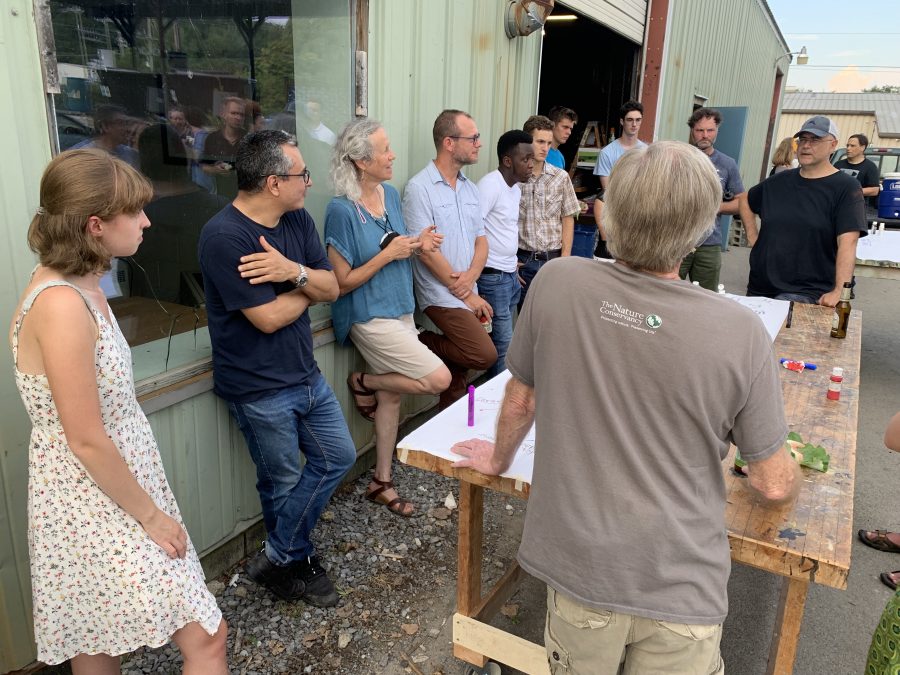
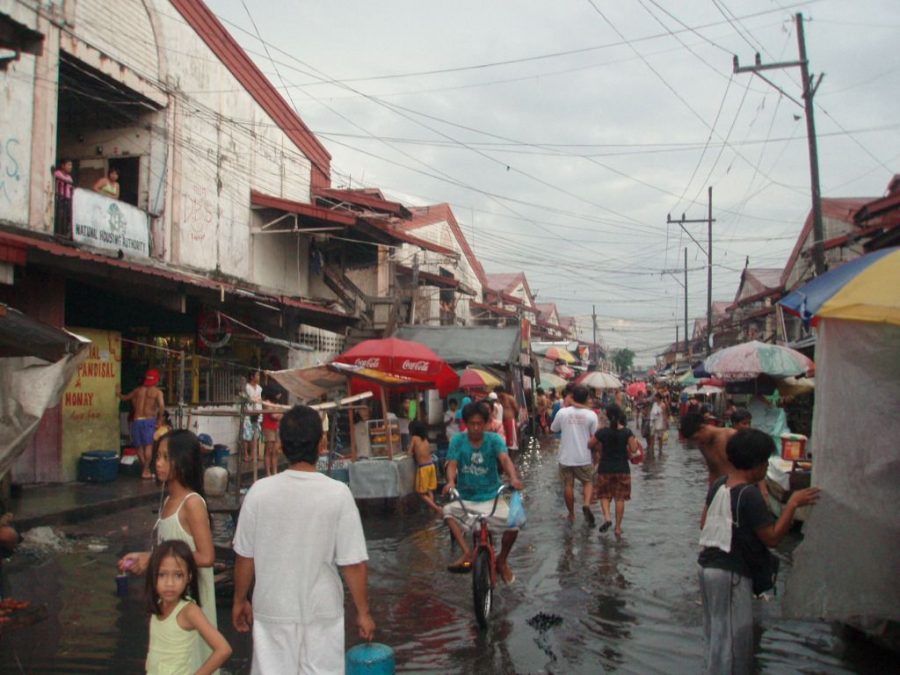
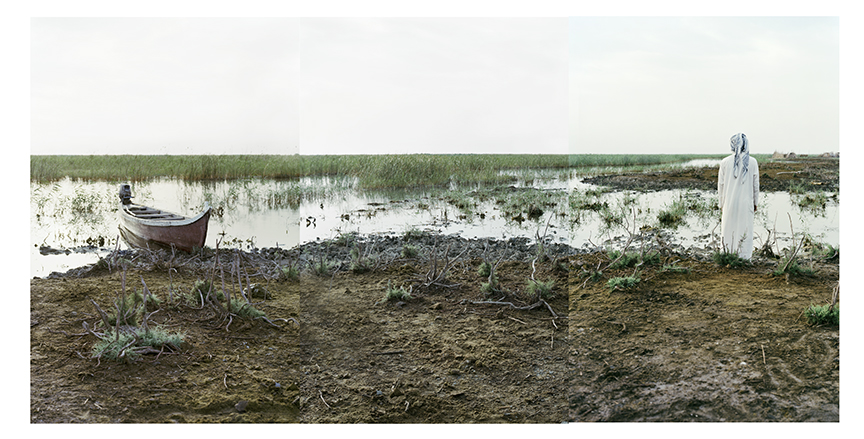
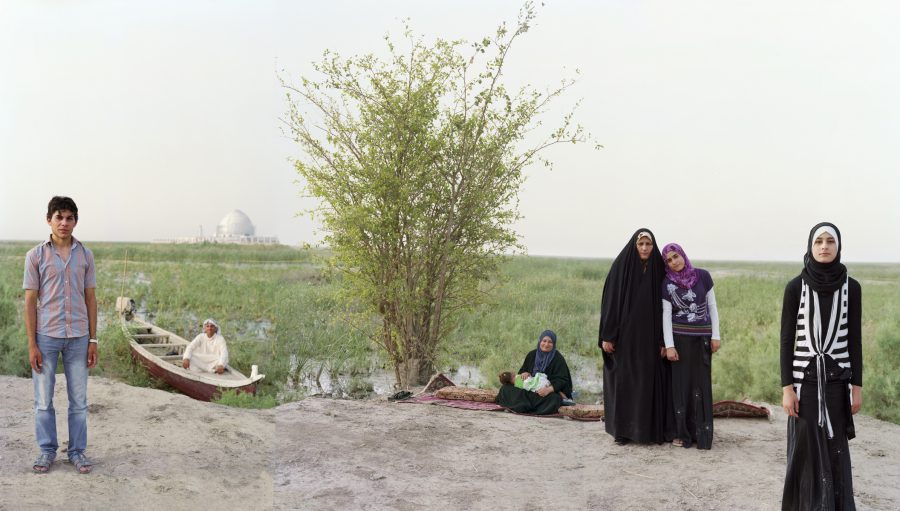
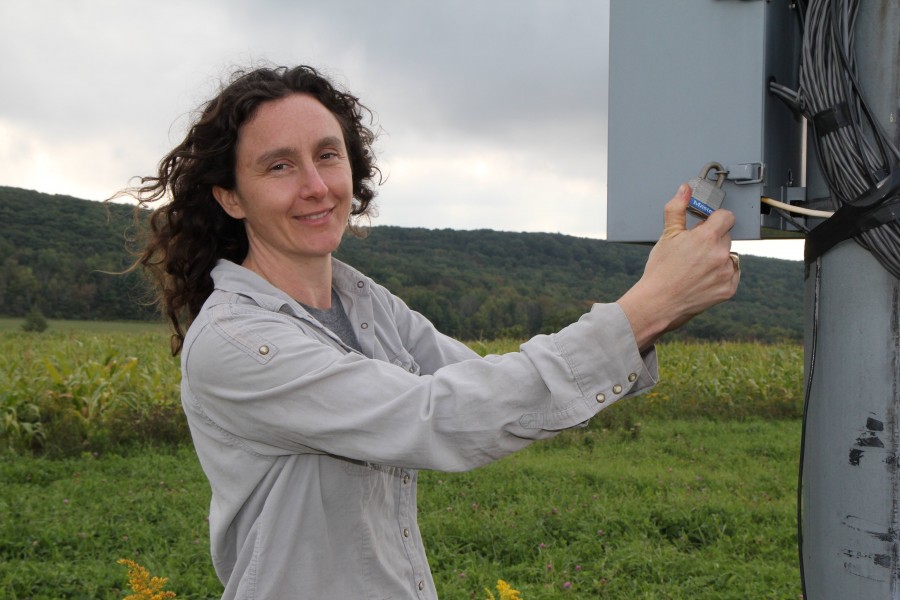
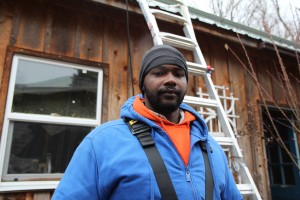
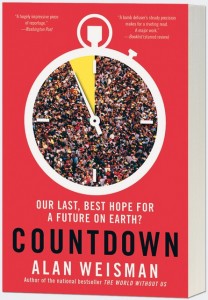

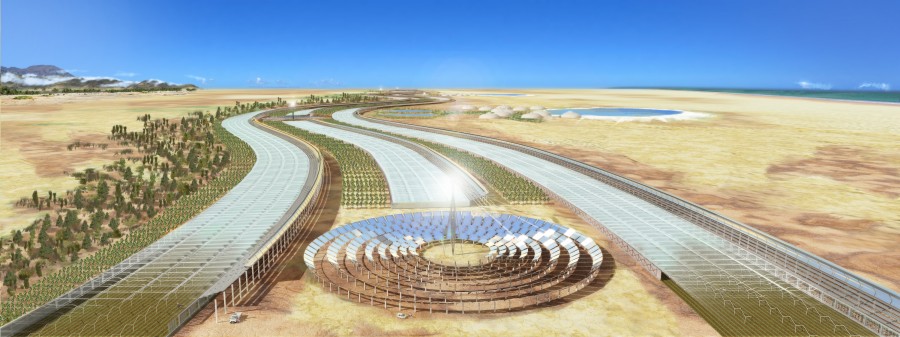
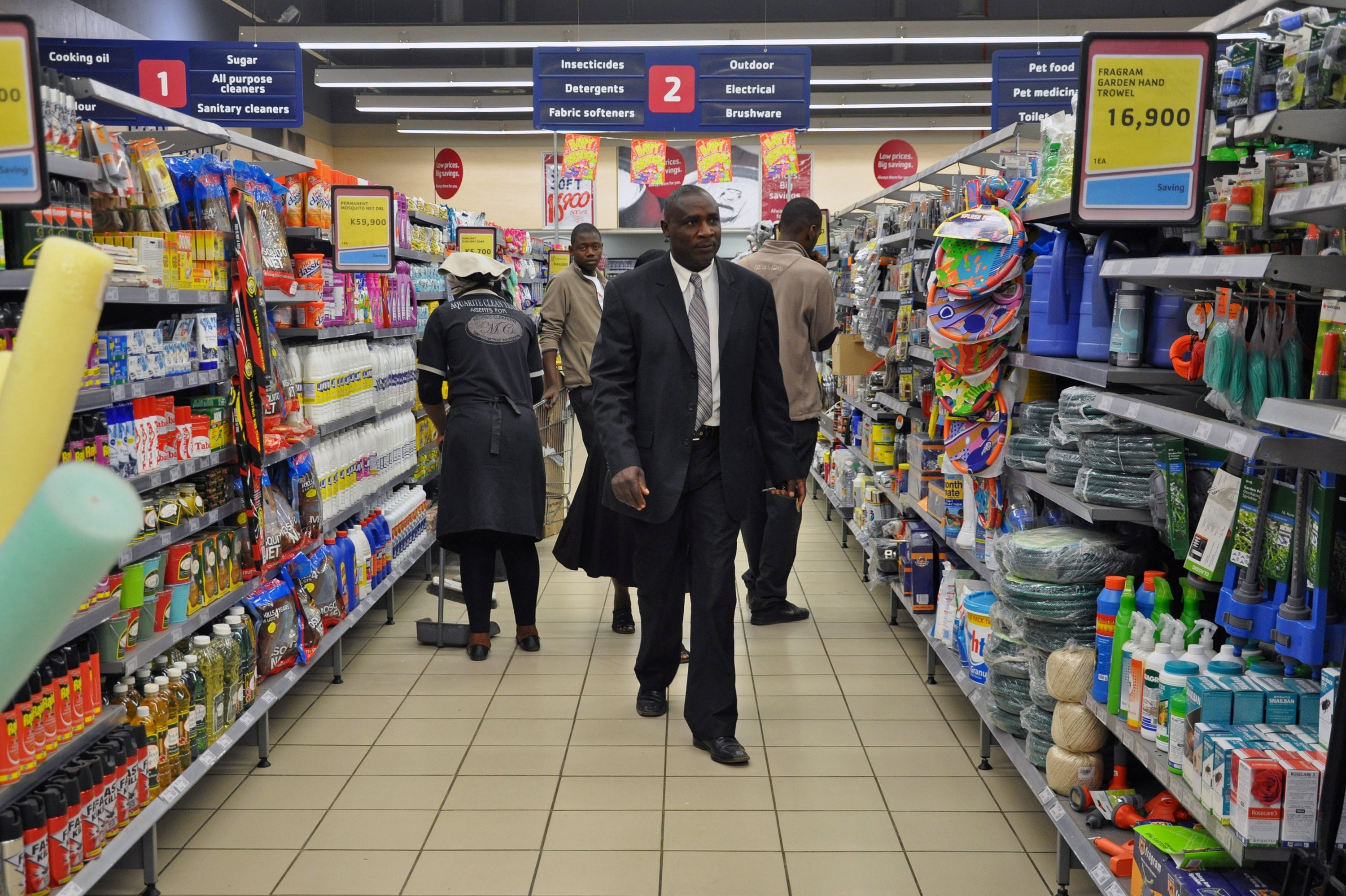

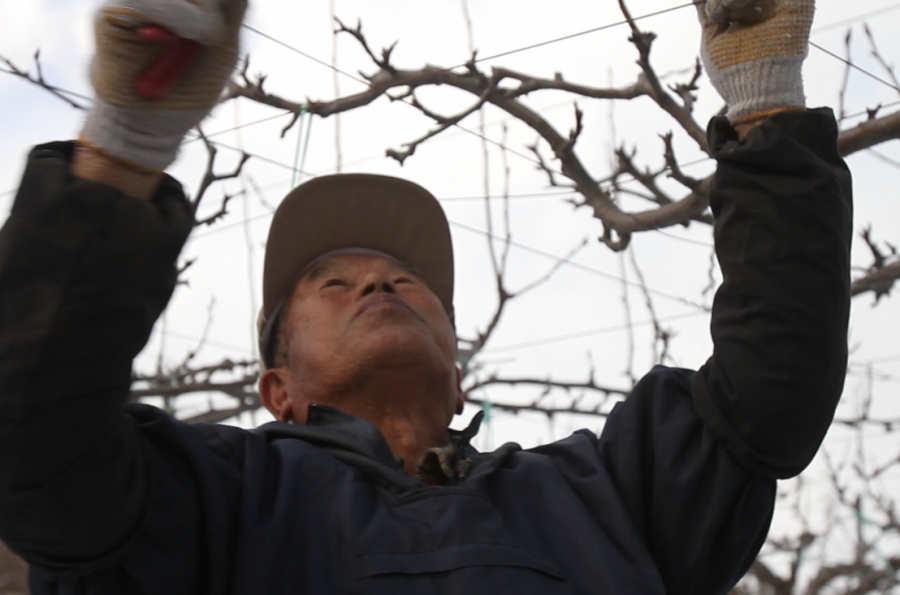
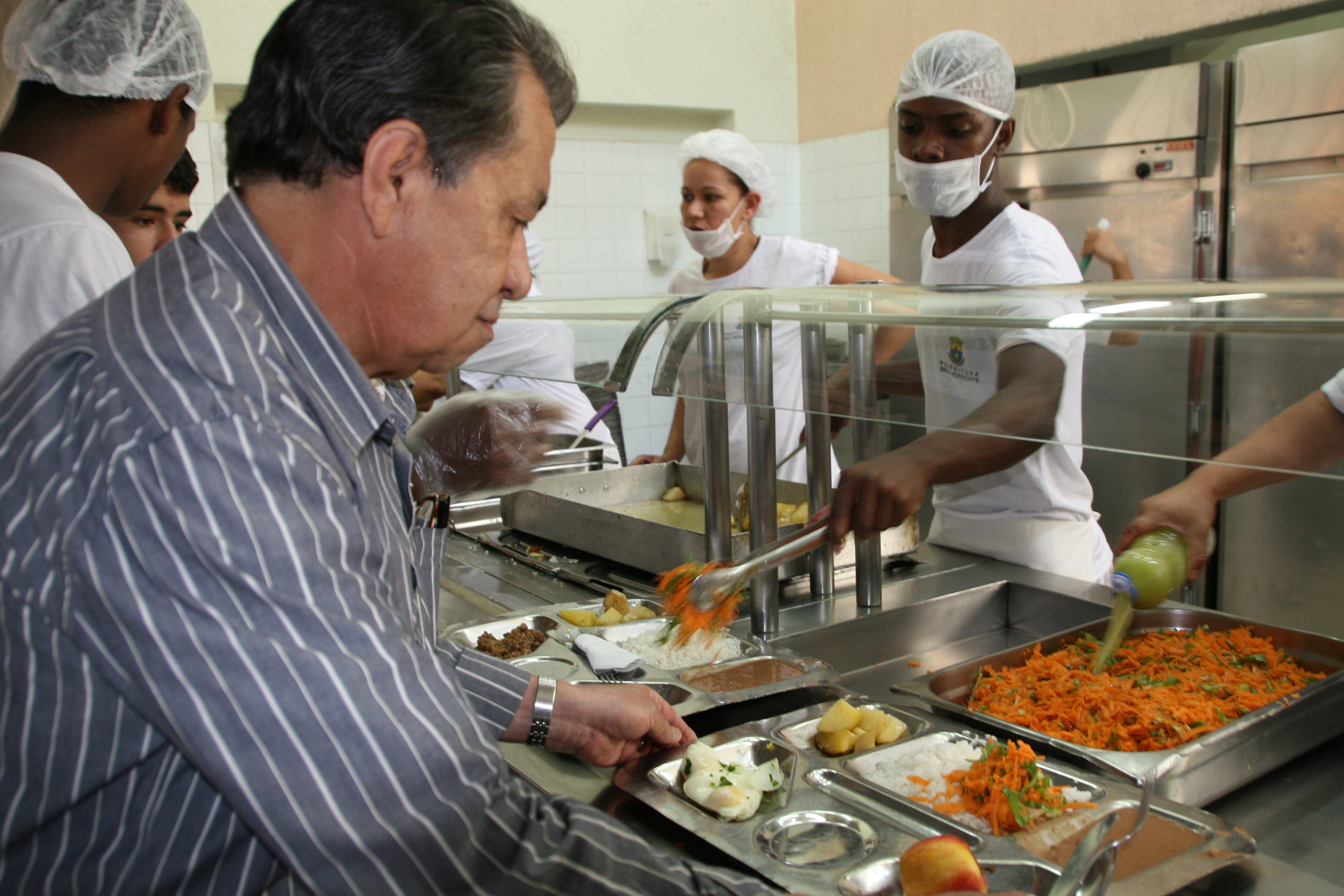
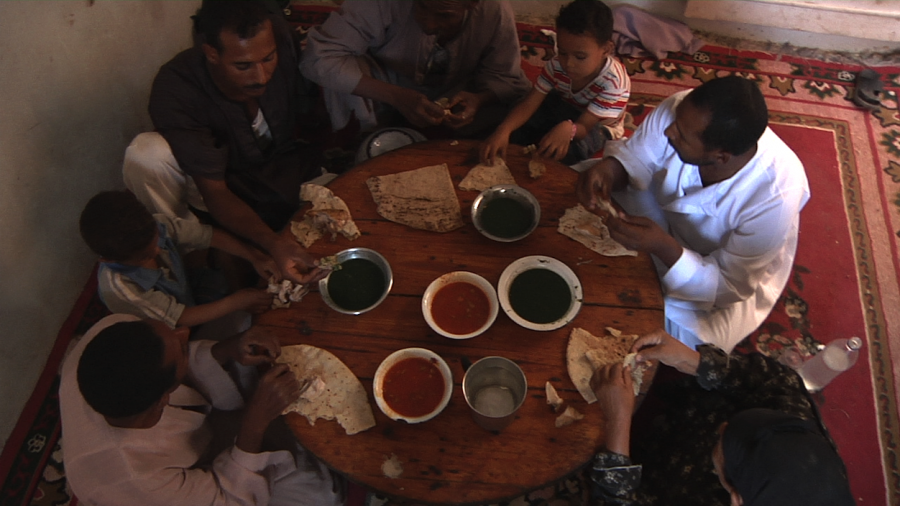
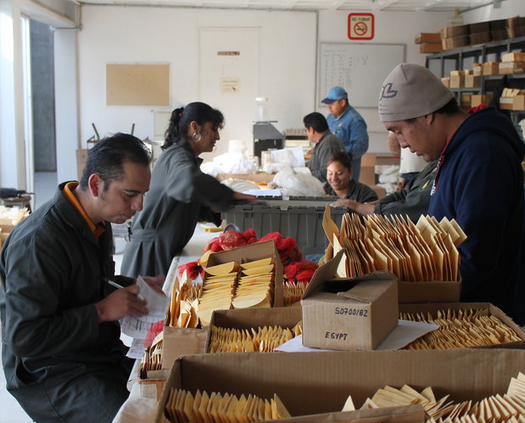

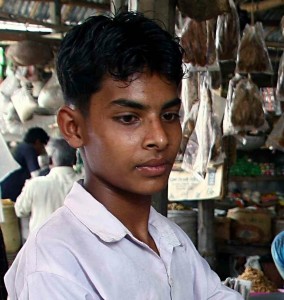 Ismael “Babu” Hussein works as an assistant in one of Bangladesh’s shipbreaking yards, where armies of laborers dismantle old vessels the way ants devour a carcass. The work is perilous, the bosses abusive, the hours exhausting.
Ismael “Babu” Hussein works as an assistant in one of Bangladesh’s shipbreaking yards, where armies of laborers dismantle old vessels the way ants devour a carcass. The work is perilous, the bosses abusive, the hours exhausting. Brandon Davies’ life is all about risk.
Brandon Davies’ life is all about risk.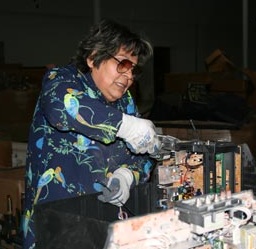 For Mexican women of a certain age, finding decent work can be nearly impossible. Vicki Ponce was in her 50s, selling tamales, grateful for the money her daughter sent home from the U.S.
For Mexican women of a certain age, finding decent work can be nearly impossible. Vicki Ponce was in her 50s, selling tamales, grateful for the money her daughter sent home from the U.S.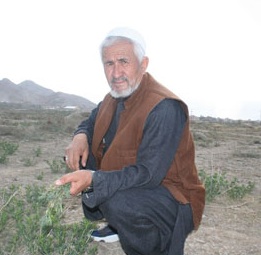 For most Afghan refugees, fleeing the war-torn country is a once-in-a-lifetime experience. For Alidad, it’s a job.
For most Afghan refugees, fleeing the war-torn country is a once-in-a-lifetime experience. For Alidad, it’s a job. If you’re a Korean man who wants to marry a Vietnamese woman, Hang Nga is your go-to gal.
If you’re a Korean man who wants to marry a Vietnamese woman, Hang Nga is your go-to gal. In the mid-1990s, journalists and human rights groups began to uncover a web of slave labor linked to some of Brazil’s biggest export industries: cattle, soy, sugar cane, and pig iron used in making steel for automobiles.
In the mid-1990s, journalists and human rights groups began to uncover a web of slave labor linked to some of Brazil’s biggest export industries: cattle, soy, sugar cane, and pig iron used in making steel for automobiles.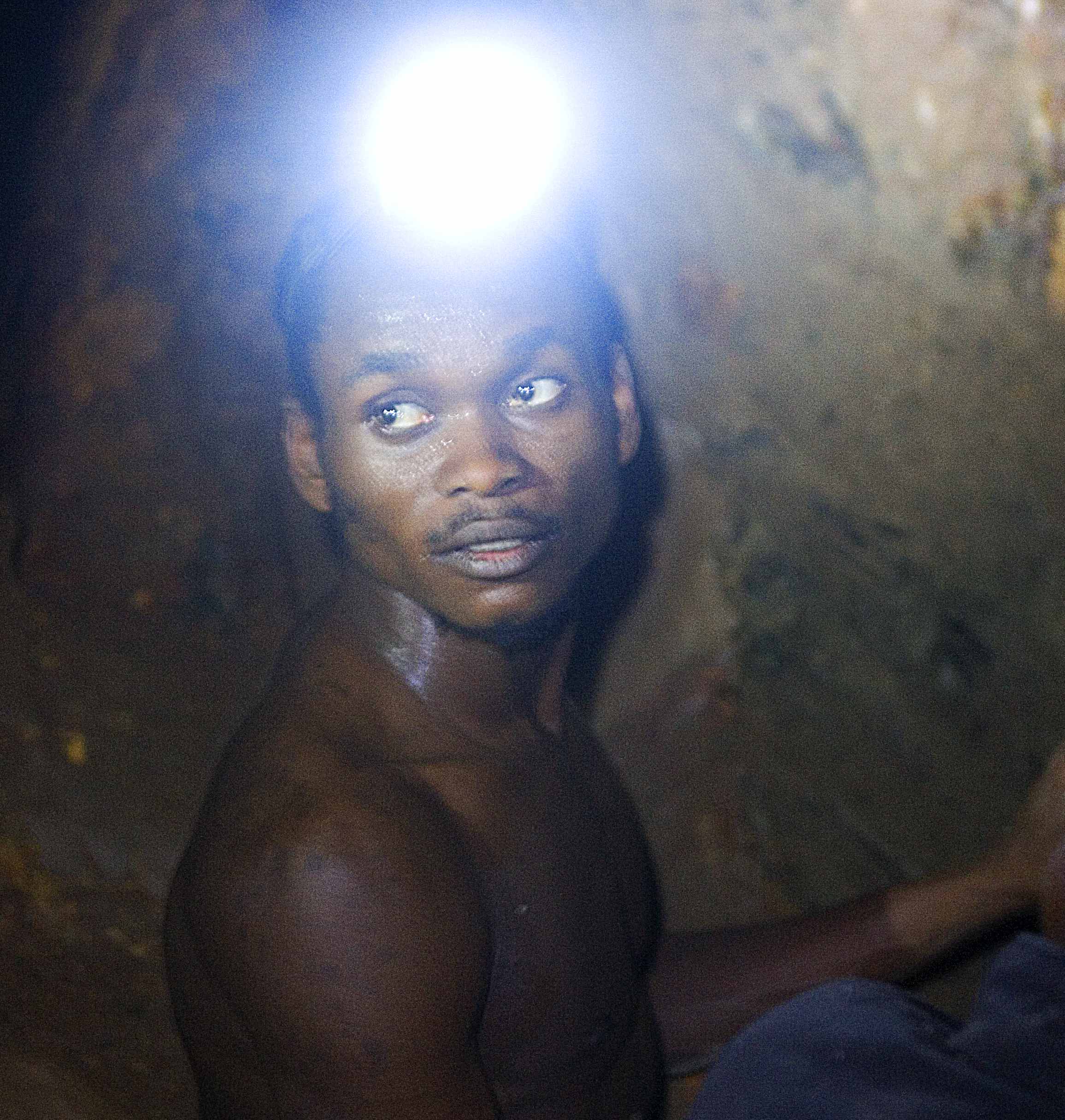 Your cell phone or laptop wouldn’t work without a mineral called coltan. The Democratic Republic of Congo has about 80 percent of the world’s coltan reserves, and that has spawned a corrupt and violent industry. Military factions vie for control of the mines, earning millions of dollars while the miners themselves barely scrape by.
Your cell phone or laptop wouldn’t work without a mineral called coltan. The Democratic Republic of Congo has about 80 percent of the world’s coltan reserves, and that has spawned a corrupt and violent industry. Military factions vie for control of the mines, earning millions of dollars while the miners themselves barely scrape by.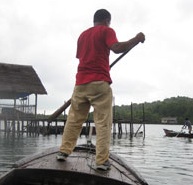 Agus Laodi could barely feed his family with his earnings as a cocoa farmer. So eight years ago, with his wife’s blessing, he left his Indonesian village to seek his fortune on an island in the Strait of Malacca.
Agus Laodi could barely feed his family with his earnings as a cocoa farmer. So eight years ago, with his wife’s blessing, he left his Indonesian village to seek his fortune on an island in the Strait of Malacca. There’s a huge amount of human effort buried in almost everything around us. You just need to know where to look.
There’s a huge amount of human effort buried in almost everything around us. You just need to know where to look. Samanta moved to Baku, the capital of Azerbaijan, for the same reason that thousands of other foreigners did: the oil boom.
Samanta moved to Baku, the capital of Azerbaijan, for the same reason that thousands of other foreigners did: the oil boom.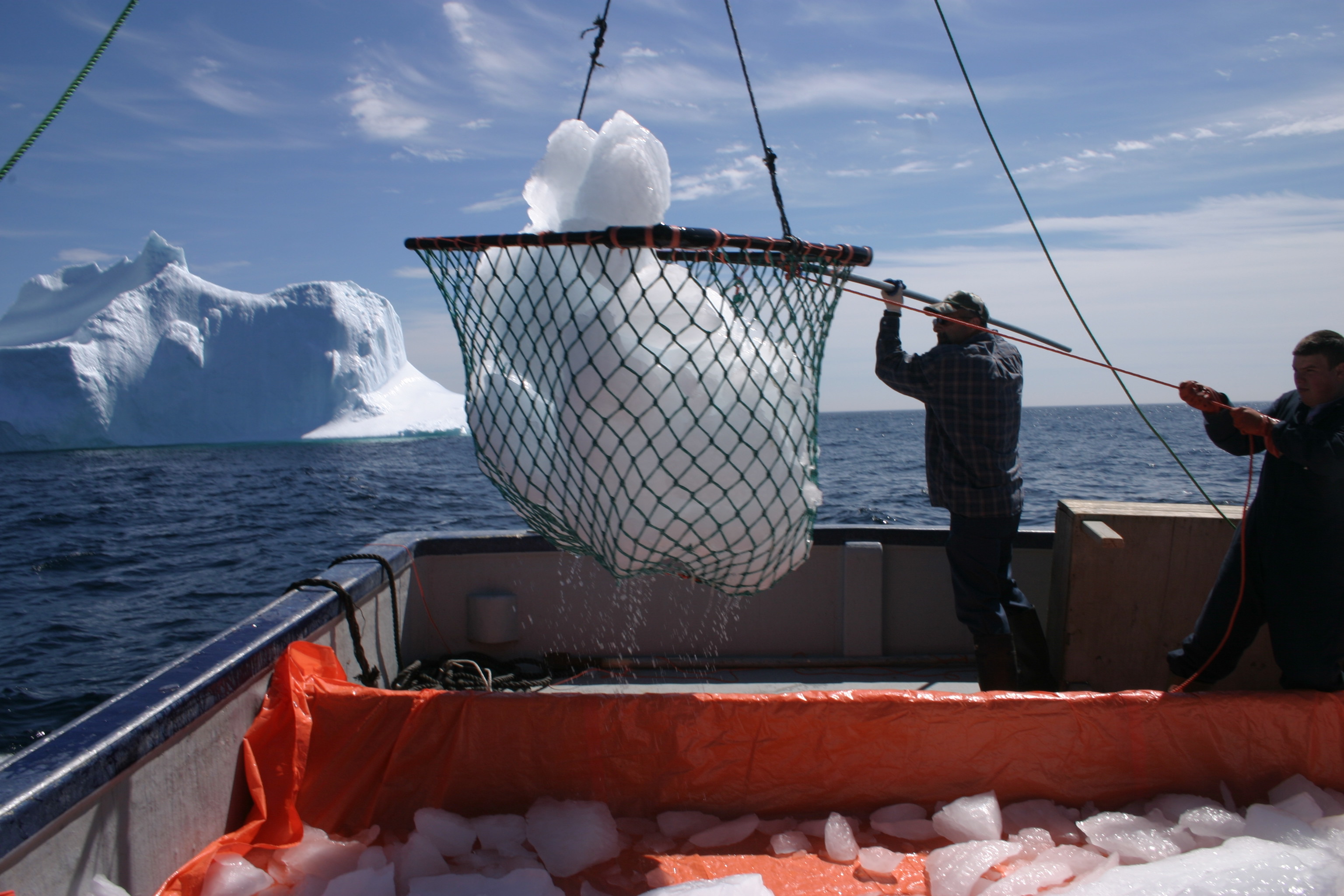 Whyman Richards says he’ll give anything a try.
Whyman Richards says he’ll give anything a try.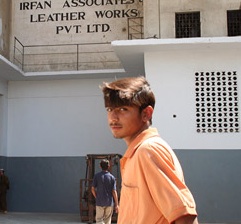 Mohmen left his village at 13 and quickly found work stacking animal skins in one of Karachi’s many tanneries. He wasn’t allowed to stand by the window when the fumes overtook him. Now, at 17, he’s still doing the same job.
Mohmen left his village at 13 and quickly found work stacking animal skins in one of Karachi’s many tanneries. He wasn’t allowed to stand by the window when the fumes overtook him. Now, at 17, he’s still doing the same job. Nigeria produces more movies per year than any other country but India and the United States. Since the 1990s, “Nollywood” videos have been an entertainment staple – and a source of pride – for Africans everywhere.
Nigeria produces more movies per year than any other country but India and the United States. Since the 1990s, “Nollywood” videos have been an entertainment staple – and a source of pride – for Africans everywhere. For thousands of years, traders have plied the waters of the Persian Gulf, braving pirates, warships, and sudden storms in wooden cargo boats called dhows.
For thousands of years, traders have plied the waters of the Persian Gulf, braving pirates, warships, and sudden storms in wooden cargo boats called dhows.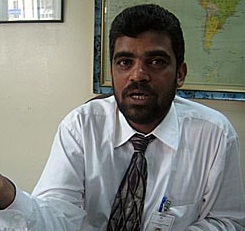 About one-fourth of the people who live in Saudi Arabia are foreign workers. Many come from Sunni Muslim countries such as Indonesia, Pakistan, or Bangladesh. But others are Christians, Buddhists, Hindus, and minority Shiites.
About one-fourth of the people who live in Saudi Arabia are foreign workers. Many come from Sunni Muslim countries such as Indonesia, Pakistan, or Bangladesh. But others are Christians, Buddhists, Hindus, and minority Shiites. The garment industry is a place where dreams are more often shattered than fulfilled. The margins are low, the work is exacting, and the competition is brutal. It’s hard to imagine why anyone would actually choose to get into the business.
The garment industry is a place where dreams are more often shattered than fulfilled. The margins are low, the work is exacting, and the competition is brutal. It’s hard to imagine why anyone would actually choose to get into the business.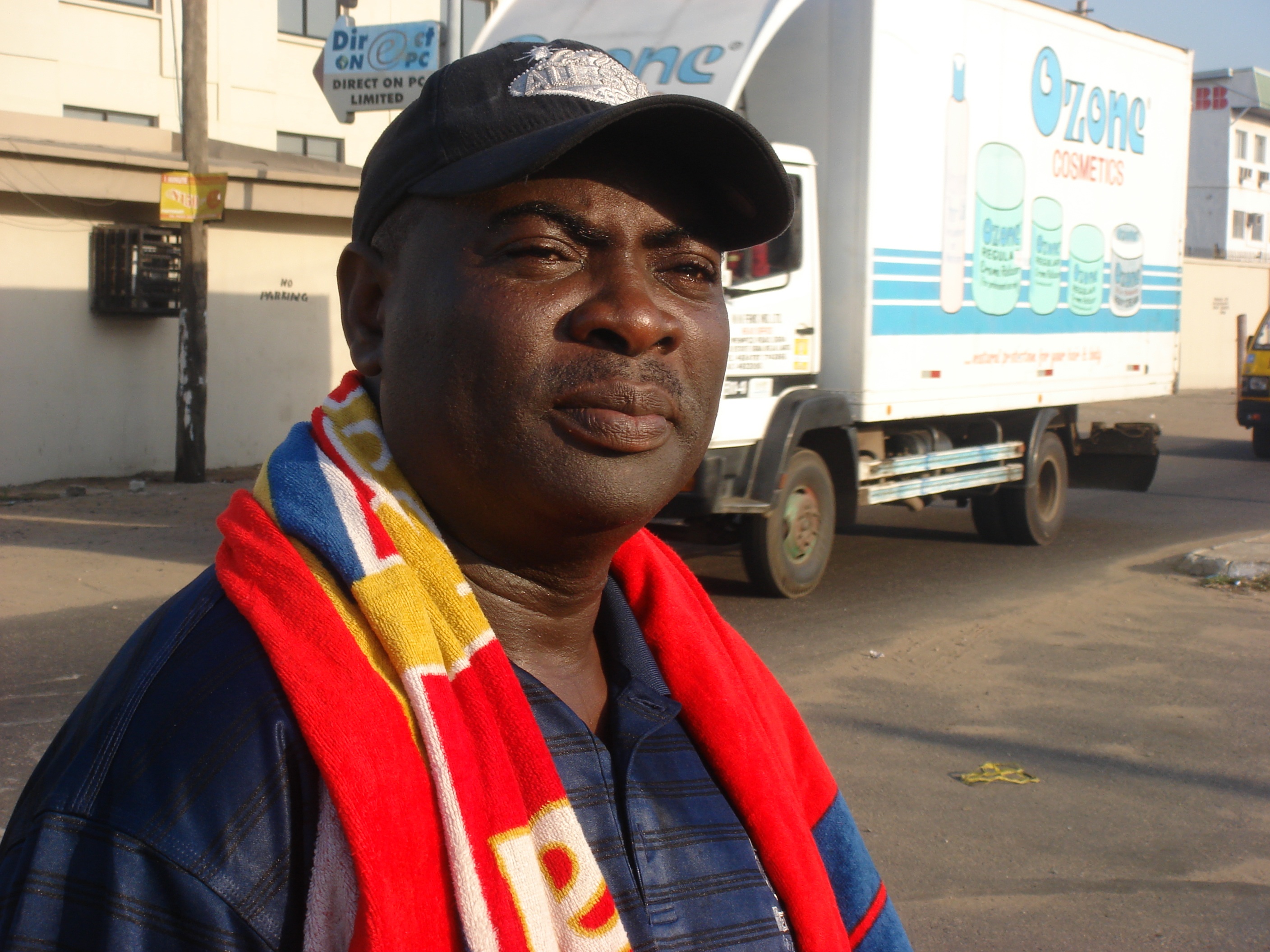 More than one-fifth of all NBA players are from outside the United States, including some of the league’s biggest stars. Most of these foreign players have been on the league’s radar since they were barely old enough to dunk. That’s thanks to a global army of basketball gumshoes, scouring the planet for talent.
More than one-fifth of all NBA players are from outside the United States, including some of the league’s biggest stars. Most of these foreign players have been on the league’s radar since they were barely old enough to dunk. That’s thanks to a global army of basketball gumshoes, scouring the planet for talent.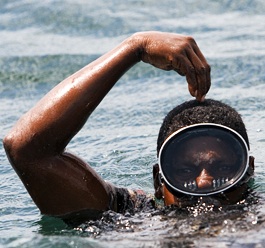 Walk into your local chain restaurant and you can get a lobster tail for around 15 bucks. Ever wonder where the lobster comes from, or why it’s so cheap?
Walk into your local chain restaurant and you can get a lobster tail for around 15 bucks. Ever wonder where the lobster comes from, or why it’s so cheap? Pam Pardy and Blair Ghent left good jobs in Toronto to return home to rural Newfoundland. They thought the quality of life would be better there for their son Brody.
Pam Pardy and Blair Ghent left good jobs in Toronto to return home to rural Newfoundland. They thought the quality of life would be better there for their son Brody.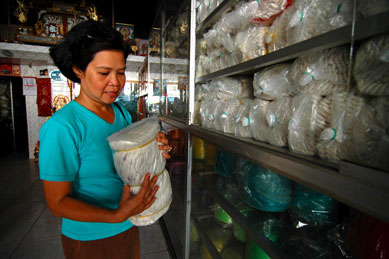 Like thousands of educated Cambodians, Chanta Nguon fled the Khmer Rouge and spent years in exile. When she returned, she decided not to be a victim anymore.
Like thousands of educated Cambodians, Chanta Nguon fled the Khmer Rouge and spent years in exile. When she returned, she decided not to be a victim anymore. Every weekday, Mr. Wang says goodbye to his daughter and his beloved pigeons in an old-fashioned Beijing neighborhood, mounts his bicycle and ventures into the chaos of the city.
Every weekday, Mr. Wang says goodbye to his daughter and his beloved pigeons in an old-fashioned Beijing neighborhood, mounts his bicycle and ventures into the chaos of the city. Diana Dimova says she’s never so moved as when she sings the ancient mountain music of her native Bulgaria. The music, distinguished by its haunting harmonies, was briefly popular in western Europe, and still enjoys a small but loyal audience.
Diana Dimova says she’s never so moved as when she sings the ancient mountain music of her native Bulgaria. The music, distinguished by its haunting harmonies, was briefly popular in western Europe, and still enjoys a small but loyal audience.
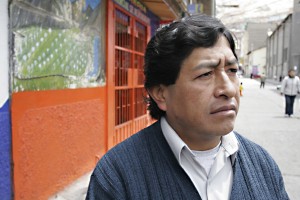
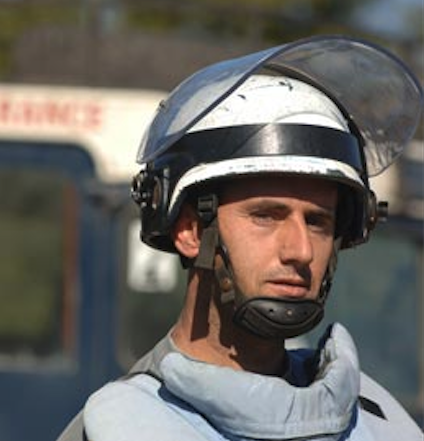 Long after the fighting ended in Kosovo in 1999, the people of the region are still struggling to free themselves from the legacy of war.
Long after the fighting ended in Kosovo in 1999, the people of the region are still struggling to free themselves from the legacy of war.